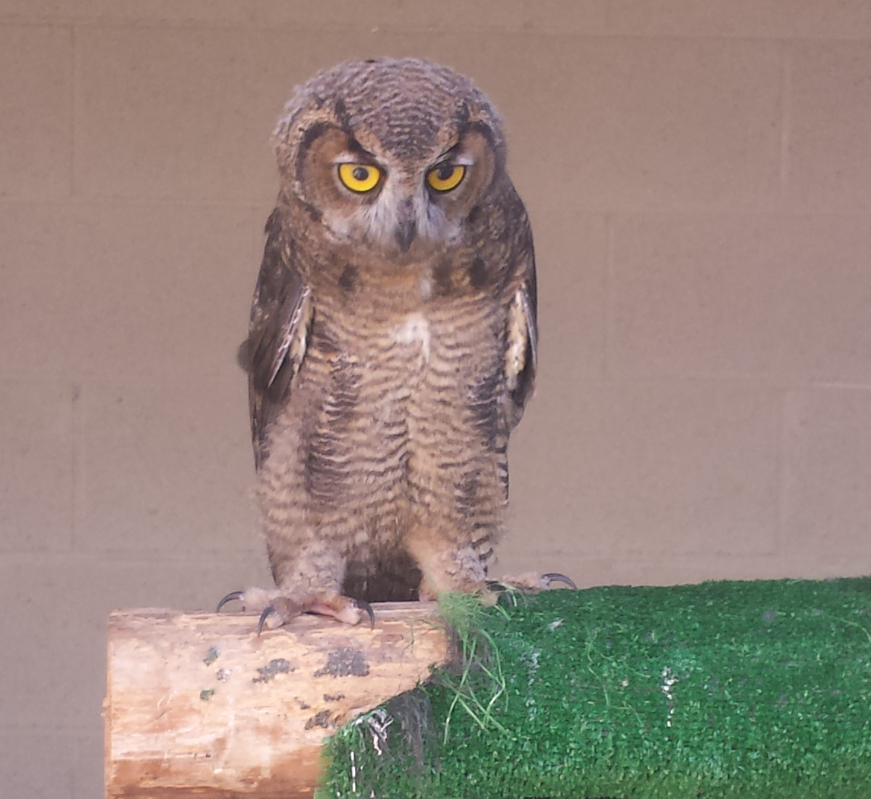PENTICTON — An urgent plea is being issued from Okanagan conservationists as the conflict between people and wildlife continues to grow.

On Saturday, a young bear had to be euthanized after spending weeks eating food waste in Kelowna neighborhoods.
READ MORE: Bear in Kelowna falls 40 feet from tree after being tranquilized; later euthanized
Now, volunteers at a south Okanagan owl rehab centre say they’re having a record year for all of the wrong reasons: too many birds are needing help, because humans are getting too close.
One owl was reported to the South Okanagan Rehabilitation Centre for Owls (SORCO) last week. The great-horned owl, named Dorothy, was being fed by people.
Now staff at Dorothy’s new home in Oliver are trying to reverse the damage.
“It’s very upsetting to see what humans have done, they have damaged [the] bird,” said Belvedere.
At the rehab centre, the owl has no human contact. Belvedere says even her food is quickly thrown in before she can see who tossed it. While staff there don’t know what Dorothy’s fate will be, they’re going to try to get her hunting and accustomed to living as a wild bird once again.
A second owl that was being fed in a nearby neighbourhood in West Kelowna however, didn’t survive.
“After we left, somebody unfortunately put more food down and during the night the bird flew down to get the food and was electrocuted,” said Belvedere.
The situation is especially concerning this year. Belvedere says there has been a record-breaking number of human-rescued owls turned in.
“We got in 28 great-horned chicks this year. Our average is four to six yearly,” said Belvedere.
She says the non-profit organization is finding its budget stretched thin trying to feed and care for the birds.
“We are going through 500 pieces of food a week and so our stock of food, 12 hundred pieces, only lasted us two weeks this year.”
She says while it’s clear many people have good intentions, the bottom line is: don’t feed wildlife.
- What is a halal mortgage? How interest-free home financing works in Canada
- Capital gains changes are ‘really fair,’ Freeland says, as doctors cry foul
- Ontario doctors offer solutions to help address shortage of family physicians
- Canada will take bigger economic hit than U.S. if Trump wins election: report




Comments